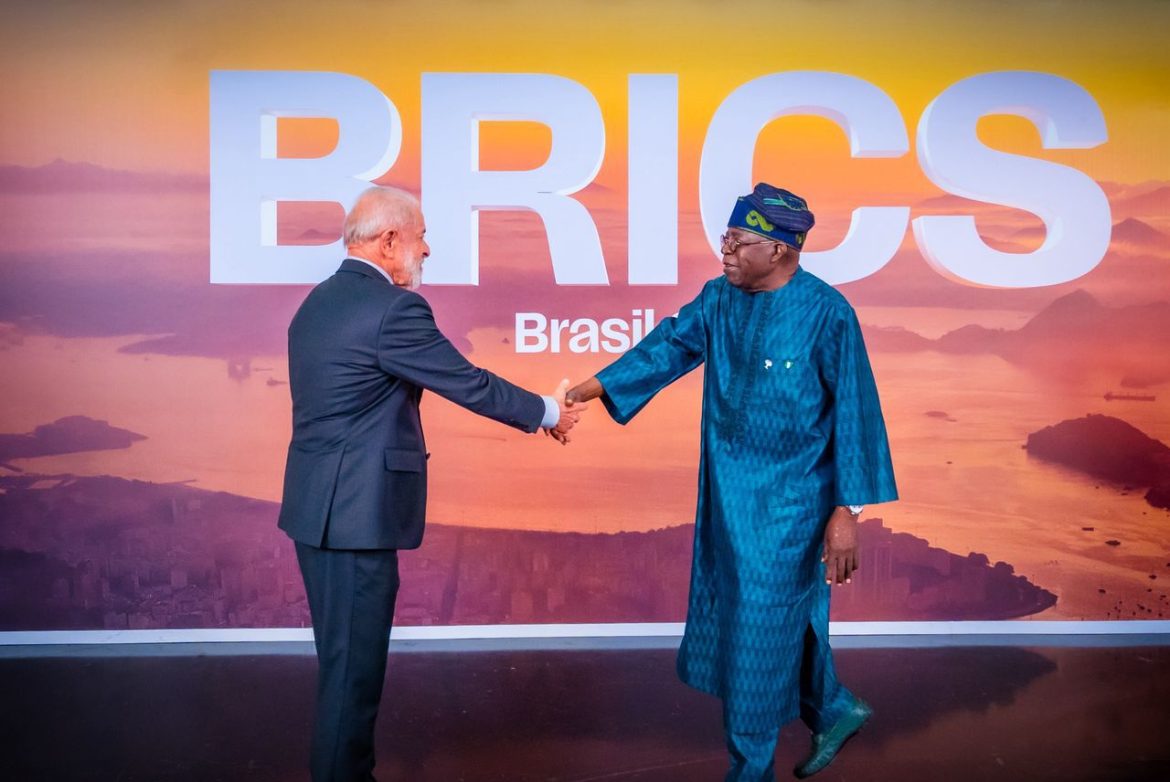728
By Tracy Moses
President Bola Ahmed Tinubu has expressed Nigeria’s full support for BRICS’ efforts to foster a collective, fair, and inclusive global development framework, emphasizing the urgent need for reform in international governance, finance, and healthcare systems.
Speaking at the 17th BRICS Summit held in Rio de Janeiro, Brazil, Tinubu stressed the importance of rethinking existing global structures to better reflect the aspirations and realities of emerging and low-income nations, particularly in Africa.
The Nigerian leader underscored the pressing challenges of environmental degradation, the worsening climate emergency, and unequal access to healthcare, which he said continue to hinder sustainable growth in developing regions.
The summit, which takes place on July 6th and 7th of July 2025, in Rio de Janeiro, brings together leaders from the expanded BRICS bloc, Brazil, Russia, India, China, South Africa, and newly admitted members including Egypt, Ethiopia, Indonesia, Iran, the United Arab Emirates, and Nigeria.
President Tinubu was invited to the summit by Brazilian President Luiz Inácio Lula da Silva. Nigeria formally became one of the nine partner countries of BRICS in January 2025, joining Belarus, Bolivia, Cuba, Kazakhstan, Malaysia, Thailand, Uganda, and Uzbekistan. This partner-country category was introduced during the 16th BRICS Summit in Kazan, Russia, in October 2024.
In his remarks, Tinubu stated, “Nigeria identifies with the positions presented here today and the developments within BRICS. The next phase must involve financial system reform and a reassessment of the global governance model.”
He pointed out that while Africa contributes minimally to global greenhouse gas emissions, it bears a disproportionate share of the consequences. “Africa has emitted the least but suffers the most,” he noted.
Tinubu called for a justice-driven approach rooted in fairness, equitable financing, and the transfer of sustainable technologies to help emerging nations take full advantage of climate and development initiatives.
He cited Africa-led projects like the African Carbon Market Initiative and the Great Green Wall as examples of the continent’s commitment to environmental solutions. He also expressed hope that COP-30 will reinforce this strategic vision for a healthier planet.
Highlighting Nigeria’s commitment to South-South cooperation, Tinubu declared that African nations must be proactive in global conversations around debt relief, climate change, environmental sustainability, and healthcare reform.
“Young people make up 70% of Nigeria’s population, and we must plan for their future,” he said. “Our Vision 2050 and nationally determined contributions reflect our commitment to a sustainable path.”
The President added that Nigeria is investing heavily in renewable energy, integrating climate action into development plans, enhancing urban resilience, and striving to achieve universal health coverage.
He also urged collective global action to combat non-communicable diseases, framing them as a critical component of future health agendas.
“As we approach COP-30 and seek to reinforce global health architecture, BRICS must evolve beyond a bloc of emerging economies to a platform for innovative, collaborative solutions rooted in solidarity, sustainability, and shared prosperity,” Tinubu said.
He reaffirmed Nigeria’s dedication to partnerships that promote inclusive, long-term development for all nations.
Accompanying the President to the summit were Ambassador Yusuf Tuggar, Minister of Foreign Affairs, and Mr. Wale Edun, Minister of Finance.
Brazil, in its role as the current BRICS chair, officially confirmed Nigeria’s entry as a partner nation on January 17, 2025.



